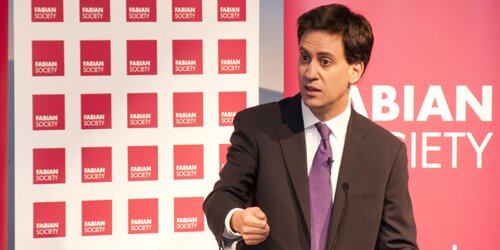How our voting system keeps helping elect extreme candidates
11:01 am - May 8th 2013
| Tweet | Share on Tumblr |
During the AV referendum campaign a couple of years ago great play was made by the “No” campaign of how a preferential system would “allow BNP voters to dictate the result”.
This was always a highly dubious claim. Indeed the BNP actually opposed AV, presumably because they realised that under a system where a candidate needs to get broad support they would likely get no seats at all. At least under FPTP they can occasionally win, usually where the barrier is often considerably lower than 50%.
One of the results from the recent local elections amply demonstrates this point.
Collin Brewer was an independent councillor in Cornwall who before the elections attracted a lot of publicity having made some highly offensive comments about disabled children and how they cost too much money so should be “put down”. He resigned at the time but decided to stand again for the Wadebridge East ward and to the consternation of many was actually re-elected.
There is an online petition at the moment trying to get him to resign again which has gathered hundreds of signatures.
But it is worth bearing in mind how he managed to get re-elected. Here is the breakdown of the 2013 results for Wadebridge East taken from the Democracy Cornwall website:
| Election Candidate | Party | Votes | % | |
|---|---|---|---|---|
| Independent | 335 | 25% | Elected | |
| Liberal Democrat | 331 | 25% | Not elected | |
| UK Independence Party | 208 | 16% | Not elected | |
| Labour | 161 | 12% | Not elected | |
| Conservative | 150 | 11% | Not elected | |
| Independent | 146 | 11% | Not elected | |
As you can see Collin only got 25% of the vote. Now I don’t know how many of those who voted for him were aware of his remarks but even if most of them were, 75% of voters voted for a candidate who does not have those views. And yet because of First Past the Post Collin was allowed to take the seat on only a quarter of the vote.
Far from preventing extreme candidates from being elected, FPTP actually allows it to happen by simply taking the candidate with the plurality of votes and giving them the seat no matter how low the vote share is. Elsewhere in Cornwall another candidate was elected on less than 20% of the vote.
We aren’t going to get AV or any other form of electoral reform any time soon I suspect but we have to accept that keeping FPTP means as a country we reap what we sow.
| Tweet | Share on Tumblr |  |
Mark Thompson is an occasional Liberal Conspiracy contributor. He is a Lib Dem member and activist and blogs about UK politics here
· Other posts by Mark Thompson
Story Filed Under: Blog ,Westminster
Sorry, the comment form is closed at this time.
Reader comments
You have to wonder how many Libdems regret the decision of the leadership to accept an AV referendum as a compromise, it wasn’t the voting reform they wanted, and the lack of enthusiasm for it came across quite strongly. Furthermore it’s easier to portray AV as ‘unfair’ in comparison to fptp by focusing on the re-allocation of 2nd and 3rd choices as ‘voting twice’.
The argument for keeping FPTP was that it kept out the BNP et al but I always found that short sighted for two reasons. First because I don’t define myself by what I’m against, and the fact that some people will vote for people I oppose is not an argument against democracy and second that in the long term it has meant that people who live in safe seats don’t see any politicians from one year to the next even when they live next to wards that are hotly contested every year.
The vast majority of the seats the BNP won were exactly these seats that had been safe Labour seats for decades and the electorate understandably felt ignored so when the BNP came along saying “people like you are being ignored” it felt spot on – it also meant winning those seats back wasn’t an impossible task as long as Labour took them seriously again.
PR allows minority voices to be heard but it also cuts against this trend for parties to only concentrate their resources in areas they might win or lose, never the ones where they win comfortably or don’t feel they can win.
Cylux: “Furthermore it’s easier to portray AV as ‘unfair’ in comparison to fptp by focusing on the re-allocation of 2nd and 3rd choices as ‘voting twice’.”
Indeed, it played straight into the right wing persecution complex. Clearly a lot of people saw it as a conspiracy by the usual suspects to ensure multiple votes for THEM, no votes for DECENT HARDWORKING BRITONS.
I’m sure that now the Tories are faced with UKIP splitting their vote they will be looking back on decisions made a couple of years ago with some regret.
“Keeps helping”?
Has the author not heard of “the exception that proves the rule”, of which the unpleasant Mr Brewer appears to be a perfect example.
I don’t think Mr Brewer shows that more extremists are elected under FPTP than PR.
The received wisdom is that the reverse is true, and this is backed by various election results in Europe.
For example, how many extra BNP votes would there be if voting for them wasn’t a “waste of time”?
It looks to me as though Brewer polled the most votes.
Without knowing anything about his work as a councillor other than the notorious statement about disabled people it would be easy to see this as a vote for an extremist, or at least some kind of backwoodsman.
It’s obviously a sparsely populated division so it’s unwise to draw any conclusions from it.
> The argument for keeping FPTP was that it kept out the BNP et al
Which would have been an argument worth engaging if we had been talking about PR or STV, when it would have been a real risk (though to my mind, if that’s what the people want they should get it). When talking about FPTP *as opposed to AV*, it was simply a lie.
For example, how many extra BNP votes would there be if voting for them wasn’t a “waste of time”?
Not enough to be worth worrying about, even if it did end up with them getting an MP or two. Hell, getting 2 MEPs elected seems to have been enough to cause the party to (quite possibly fatally) split.
Unfortunately the FPTP won on the back of lies. All this stuff about votes supposedly counting twice is so much nonsense, although if people really believe that then you wonder why they’re not out campaigning to get rid of the Supplementary Vote used for mayoral elections, which is just a simplified (and slightly inferior) form of AV.
@5 Jack C, surely the comparison being made here is between FPTP and AV, not between FPTP and PR. AV is not and has never been a form of PR.
one thing i saw at the time as results came in is in some councils av won example oxford and cambridge or lost but was competitive example wigan and manchester. i would suggest that the right of people to pettion for a referendum on an elected mayor could be used as a model for the right to people to ask for a referendum on changing their councils voting system. a simple change that should for now by those interested.
I find that whoever gets voted in somehow worsens the current situation, but Gorden Brown selling off British gold takes the biscuit.
I’d say the ‘yes to AV’ campaign was badly bungled, and as someone who eventually voted yes, but hadn’t made up my mind until very late, indeed until after it looked like going down, the argument that AV would keep out ‘extreme’ candidates was not a good one to make, as it gave the impression that AV would be a cozy stitch-up for the mainstream parties, who would be able to cement their positions even stronger than now, heralding an eternal coalition of smug centrists. As I said, I voted yes, but rather in spite of the ‘yes’ campaign (and possibly out of a habit of voting for losers!)
It should be possible for “extreme” candidates to get into parliament. By modern standards any true socialist for example would be considered a far-left extremist. I’d vote for ‘em.
Reactions: Twitter, blogs
Sorry, the comment form is closed at this time.
NEWS ARTICLES ARCHIVE























